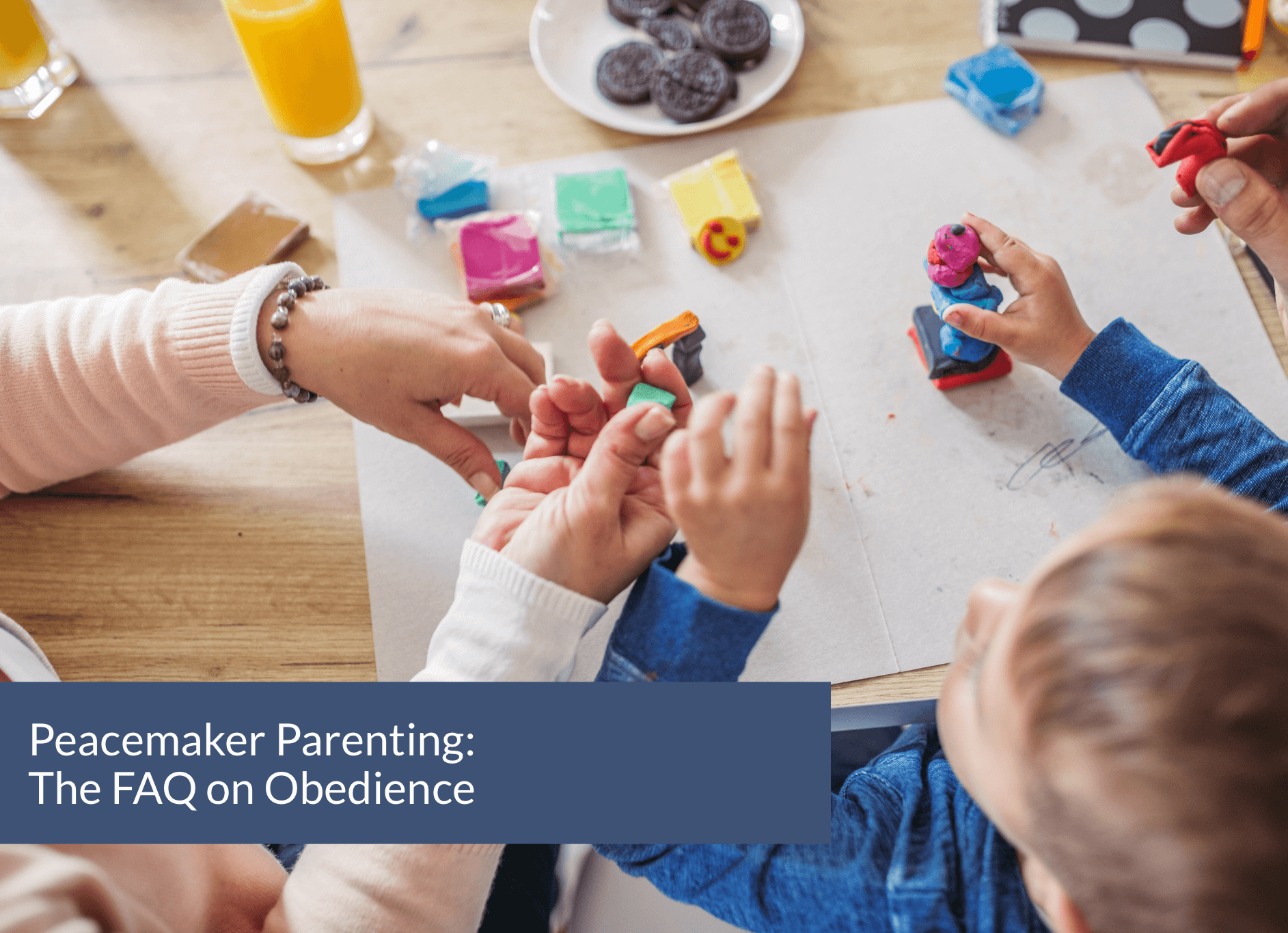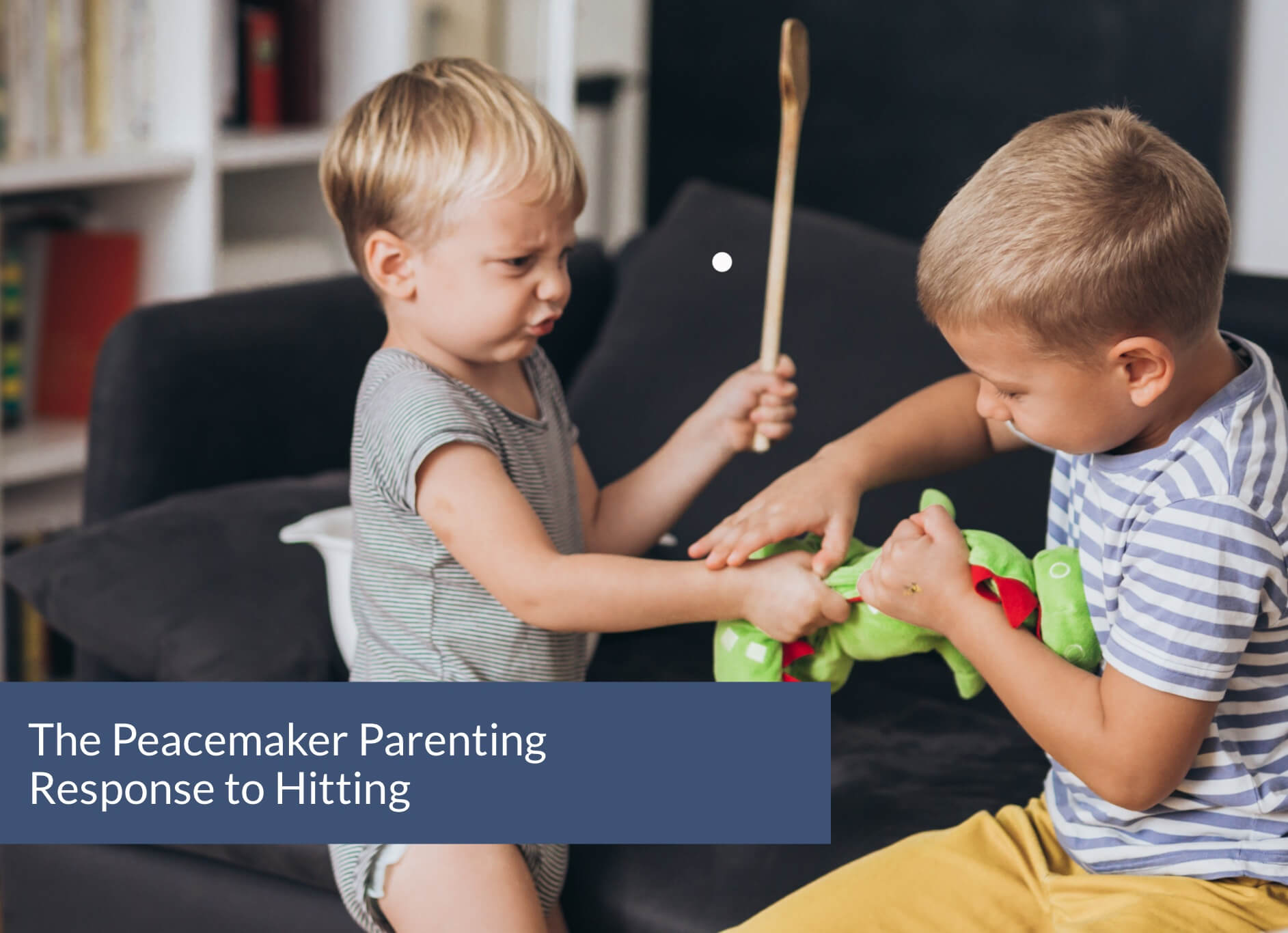
There was a time when I couldn’t tell the difference between a meltdown and defiance.
When our boys were very young, they would stomp or slam doors or throw something across the room when they were upset, my gut response was: How dare you? That's unacceptable!
Because that’s what I’d been taught to believe - about children, about behavior, and about what “respect” should look like.
But slowly, Jesus began softening my eyes.

There is a popular teaching in Christian parenting circles, sometimes stated outright but often implied: teach your children to obey you so that when they grow up, they will know how to obey God. With such a heavy burden, parents develop catchy phrases like, "Obedience is doing what I say, when I say it, with a happy heart," or "Obedience the first time, every time."
At first glance, this idea may seem logical, even biblical. But when we examine Scripture, we see that this approach goes beyond what Jesus actually teaches. In reality, it promotes legalism rather than true obedience, and it is rooted in a flawed understanding of both obedience and spiritual formation.
Read more...When it comes to obedience, one of the biggest mindset shifts we can make is seeing it as more than just rule-following- it’s about relationship. In Peacemaker Parenting, obedience isn’t about control; it’s about connection, trust, and discipleship. In this post, we’re answering your biggest questions about obedience so you can move beyond power struggles and into a more peaceful, Jesus-centered approach.


Our family has been through quite a lot in the past six months. We've launched a book, walked through a health emergency that shook us—complete with a life flight, packed up and moved out of our home of 15 years, moved into a multi-generational home with Amanda's parents and brother, hosted Thanksgiving and Christmas, finished writing the study guide to our book, and recorded video sessions for it. Add to that David’s annual work review, traveling to attend and speak at conferences, juggling meetings with our contractor about the house remodel, and, oh yes, parenting our kiddos! At times,, the weight of it all felt immense. I won’t pretend it’s been easy. It's been hard, overwhelming at times. But through the chaos and exhaustion, God’s goodness has been so, so evident. In every moment—good and hard—He has been right there, anchoring us.
Read more...
One of the most frequently asked questions we get, when it comes to behavior challenges, is "What do I do when my child tries to hit me or their sibling?" The good news is: hitting is a very typical behavior for toddlers and early preschoolers. The bad news is: hitting is a very typical behavior for toddlers and early preschoolers.
If you're in the throes of hitting (do you see what we did there?), we know it is one of the most challenging moments to face. Whether it’s a sibling, a friend, or even us, hitting feels like a big deal, and it’s easy to feel overwhelmed. But instead of reacting with frustration or anger, Peacemaker Parenting encourages us to approach these moments with calmness, empathy, and clear boundaries. In the heat of the moment, our kids need us to be the steady ones—teaching them not just how to stop hitting, but to understand and handle their emotions in a healthier way.
Read more...





